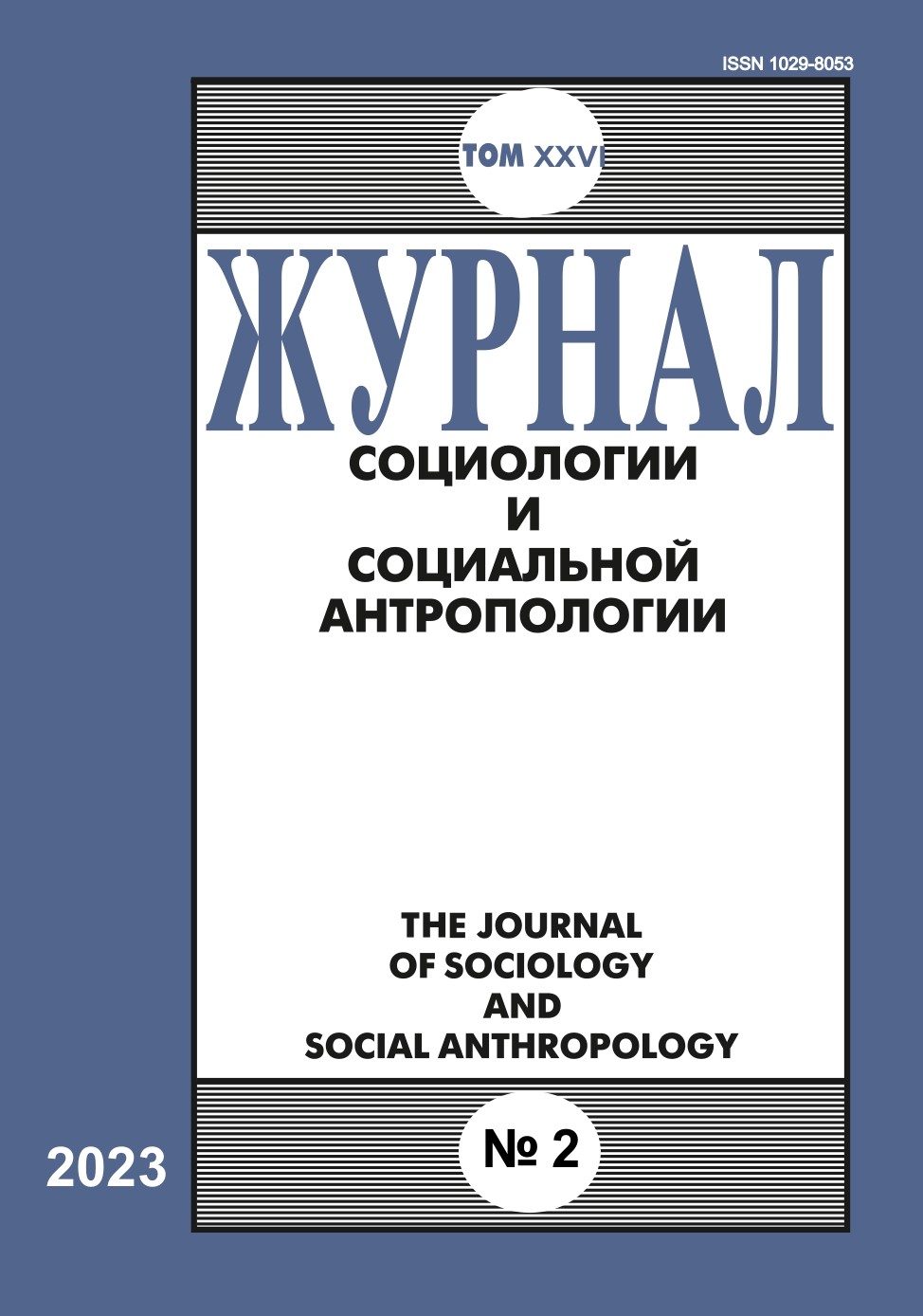Alignments in social movement fields: the construction of small and large-scaled performance outcomes
Abstract
The paper explores how members of social associations construct the outcomes of their efforts. It focuses on the experience of two Russian civic initiatives: a historic preservation movement in Nizhny Novgorod, and an environmental movement in St. Petersburg. Relying on the theory of social movement fields (B. Useem, J. Goldstone), the authors show what small and large-scaled goals the participants of these movements set, what efforts to achieve the goals they undertake, how their actions are embedded in the configurations of social movement fields, and how the activists retrospectively estimate the immediate and long-term outcomes of their activity. As a result, the authors conclude that the micro-goals of the social movements under study are (potentially) accomplishable — but only within a specific alignment of the social movement field: when the powerholders are open to a productive dialogue with the activists, when relations of cooperation between the activists and individual politicians or political structures have been shaped, when there are no mutually beneficial alliances between business stakeholders and local politicians, etc. Meanwhile, the macro-goals and related successes in the field seem principally unrealizable. Thus, the activists are confined to “small deeds” by performing in “conservation areas” only, i.e. focusing on local city territories and/or commensurating their claims with the sanctions of strong stakeholders but not going as far as to essentially transform the social movement field.
References
Бедерсон В.Д. (2020) Гражданские ассоциации и политический режим в мировой недемократической практике: между политическим контролем и социальной эффективностью. Полис. Политические исследования, 2: 37–52.
Желнина А.А., Тыканова Е.В. (2021) «Игроки» на «аренах»: анализ взаимодействий в городских локальных конфликтах (случай Санкт-Петербурга и Москвы). Журнал исследований социальной политики, 19(2): 205–222.
Кулмала M. (2011) Взаимодействие государства и гражданского общества в современной России: этнографический подход. Резюме. Laboratorium. Журнал социальных исследований, 3(1): 165–170.
Флигстин Н., Макадам Д. (2022) Теория полей. М.: Изд. дом Высшей школы экономики.
Bederson V., Semenov A. (2022) Between autonomy and compliance: The organizational development of Russian civil society. Resourceful Civil Society: Navigating the Changing Landscapes of Civil Society Organizations. Cham: Palgrave Macmillan: 171–194.
Crotty J. (2009). Making a difference? NGOs and civil society development in Russia. Europe-Asia Studies, 61(1): 85–108.
Fligstein N., McAdam D. (2011) Toward a general theory of strategic action fields. Sociological Theory, 29(1): 1–26.
Fröhlich C. (2012) Civil society and the state intertwined: the case of disability NGOs in Russia. East European Politics, 28(4): 371–389.
Fröhlich C., Jacobsson K. (2017) States shaping civic activism: comparing animal rights activism in Poland and Russia. The Sociological Quarterly, 58(2): 182–201.
Giugni M.G. (1998) Was it worth the effort? The outcomes and consequences of social movements. Annual Review of Sociology, 1(24): 371–393.
Javeline D., Lindemann-Komarova S. (2020) Financing Russian civil society. Europe-Asia Studies, 72(4): 644–685.
Kolb F. (2007) Protest and opportunities: the political outcomes of social movements. Frankfurt; N.Y.: Campus Verlag.
Ljubownikow S., Crotty J., Rodgers P.W. (2013) The state and civil society in Post-Soviet Russia: the development of a Russian-style civil society. Progress in Development Studies, 13(2): 153–166.
McAdam D., McCarthy J.D., Zald M.N. (1998) Social movements. In Smelser N.J. (ed.) Handbook of sociology. Beverly Hills; L.: Sage: 695–737.
Tykanova E., Khokhlova A. (2020) Grassroots urban protests in St. Petersburg: (non-) participation in decision-making about the futures of city territories. International Journal of Politics, Culture, and Society, 33(2): 181–202.
Useem B., Goldstone J.A. (2022) The paradox of victory: social movement fields, adverse outcomes, and social movement success. Theory and Society, 51(1): 31–60.
Yin R.K. (1994) Discovering the future of the case study. Method in evaluation research. Evaluation Practice, 15(3): 283–290.

